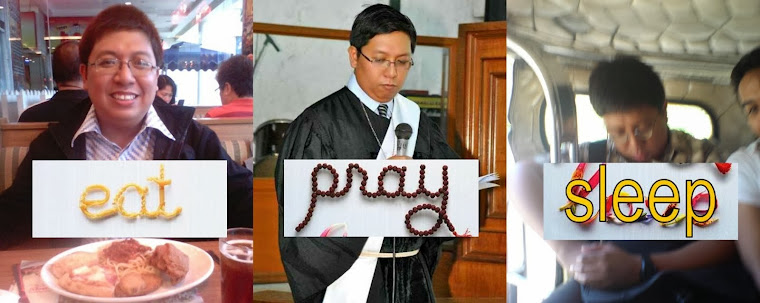Eleventh
Sunday after Pentecost (A)
August
24, 2014
Exodus
2:1-10
From the movie "The Ten Commandments" (1956) by Cecil B. DeMille
Introduction
Last
Sunday was our last lesson from the Book of Genesis. Today we
continue our series from the Old Testament with the Book of Exodus.
The Book of Genesis is the book of beginnings: Creation, the Flood,
Abraham, Isaac, Jacob, and Joseph. The Book of Exodus is the story of
the escape of the People of Israel from slavery in Egypt.
Last
Sunday, we ended our studies in Genesis with the story of Joseph.
Joseph was now reconciled with his brothers (Genesis 45:1-10). He
then asked his brothers to bring their father Israel from Israel and
all of their families to the land of Goshen in Egypt. There he will
take care of them for the five years of famine still remaining.
The
Israelites as slaves in Egypt.
And
this is the reason why the Israelites were in Egypt. Turning to
Exodus chapter 1, several years after the death of Joseph, there came
a new king in Egypt "which knew not Joseph" (v. 8) and
enslaved the People of Israel (vv. 9-10). To keep the Israelites from
multiplying, he ordered a "massacre of the innocents"
(similar to that of Herod the Great during the time of Jesus, Matthew
2:13-23) by ordering that all male babies that were born be killed
(1:15-16) by being thrown into the Nile river (v. 22).
The
birth of Moses. According
to our text, "a man from the tribe of Levi...took to wife"
(a Hebrew expression meaning 'to take as a wife' or 'to marry a
woman') another "daughter of Levi", named Amram and
Jochebed respectively (2:1; cf. 6:20). When the woman gave birth to a
son, she saw that the child was "a goodly child" and hid
him for three months (v. 3). When she could not hide him any longer,
she made an ark (the same word used for the ark of Noah, in Hebrew,
תֵּבַת,
tebah)
and laid it among the "flags" (KJV, "reeds" in
the NIV; the same word used to describe the sea through which the
Israelites passed through; in Hebrew, יַּם-סוּף,
yam
suf,
Exodus 15:22; the 'Sea of Reeds', not the 'Red Sea') along the Nile
River. He was eventually found by the Pharaoh's daughter who adopted
him as her own son, therefore naming him Moses (Hebrew מֹשֶׁה,
Mosheh,
from mashah,
'to draw out') because she drew him out of the water (vv. 5-10). So
instead of being destroyed, Moses had the opportunity to be "educated
in all of the wisdom of the Egyptians" (according to St. Stephen
the Protodeacon and Protomartyr in Acts 7:22).
The
life of Moses is an example of a life of faith; for he is among those
whose faith is recorded in the eleventh chapter of the Epistle to the
Hebrews, called "the Hall of Faith" (Hebrews 11:23-29)
I.
A Faith that can defy the order of a king. (Hebrews 11:23).
Because
of their faith, the parents of Moses defied the order of the king to
have their son killed. (Because he was a "beautiful" child
[John Wesley New Testament]; cf. Acts 7:20. The Greek word used was
asteios,
the same word used in the Septuagint in Exodus 2:2.) We are blessed
that we live in a country where there is freedom of religion. But let
us reflect, when it comes between choosing to follow the laws of man
or the laws of God, what choice will we make? "We ought to obey
God rather than man"! (Acts 5:29).
II.
A Faith that can renounce the pleasures of this world. (Hebrews
11:24-25)
Because
of his faith, Moses would rather suffer affliction with his people,
his fellow Hebrews, rather than "enjoy the pleasures of sin for
a season" (v. 25). Affliction (Greek, συγκακουχέω,
sugkakoucheo)
means 'to be ill treated in company with' or 'to share persecutions
with'. Are we ready to share afflictions with the people of God? Or
would we rather "enjoy the pleasures of sin for a season"?
III.
A Faith that can sharing in the reproaches of Christ. (Hebrews 11:26)
Because
of his faith, Moses considered "the reproaches of Christ"
greater than the treasures of Egypt (v. 26). Reproach (ὀνειδισμός,
oneidismos)
means a suffering 'such as Christ suffered, for the cause of God and
from his enemies'. Therefore the Bible says,
Therefore I am well pleased in weaknesses, in reproaches, in necessities, in persecutions, in distresses for Christ's sake; for when I am weak, then I am strong.(II Corinthians 12:10)
If ye are reproached for the name of Christ, happy are ye; for the spirit of glory and of God resteth upon you: on their part he is evil-spoken of, but on your part he is glorified.(I Peter 4:14)
Conclusion
As
we reflect on the life of Moses, which was a life of faith, let us
reflect on our own faith. Is our faith the
kind that would rather choose to obey God than man? Is our faith the
kind that would rather choose to suffer with the righteous than to
enjoy the pleasures of sin? Is our faith the kind that rejoices in
the reproach of Christ? Amen.








